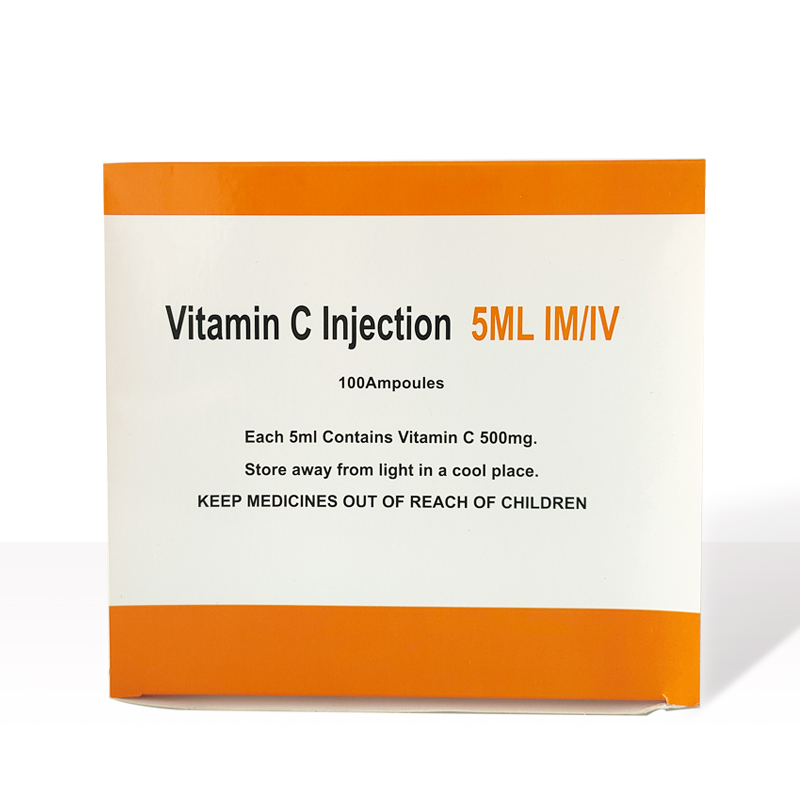
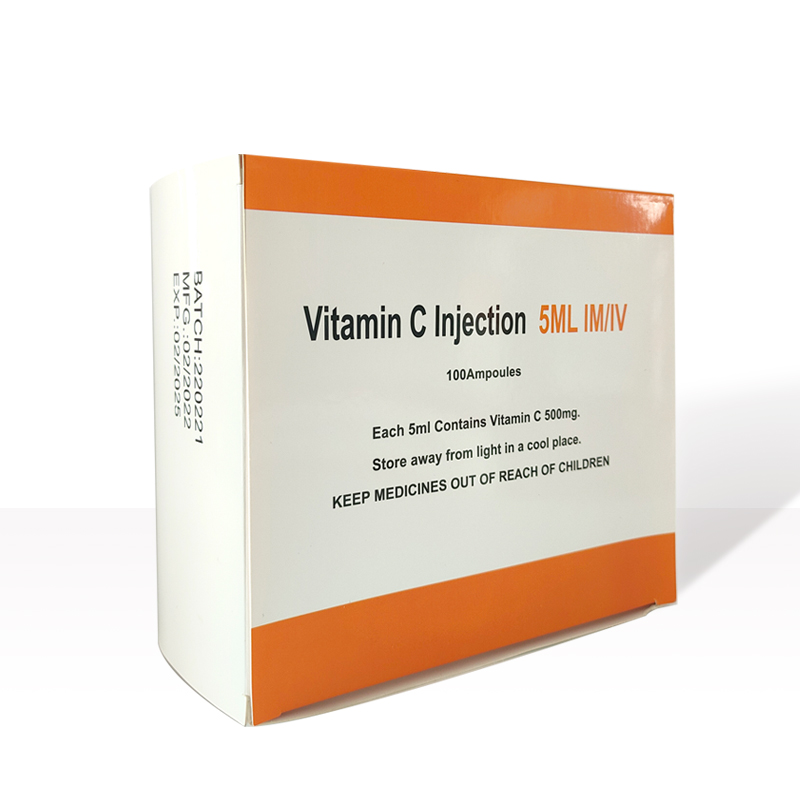
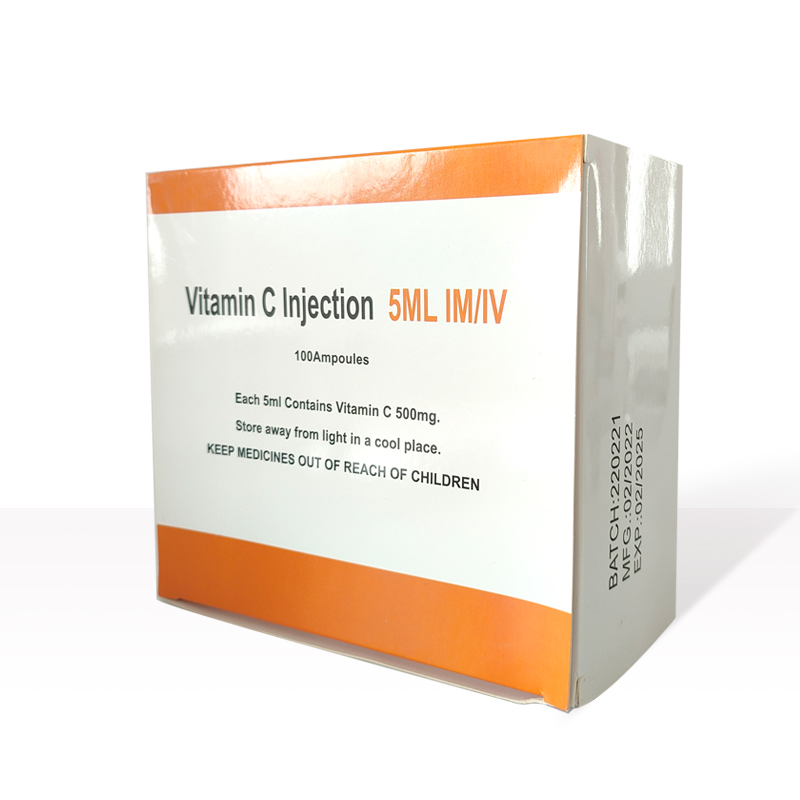
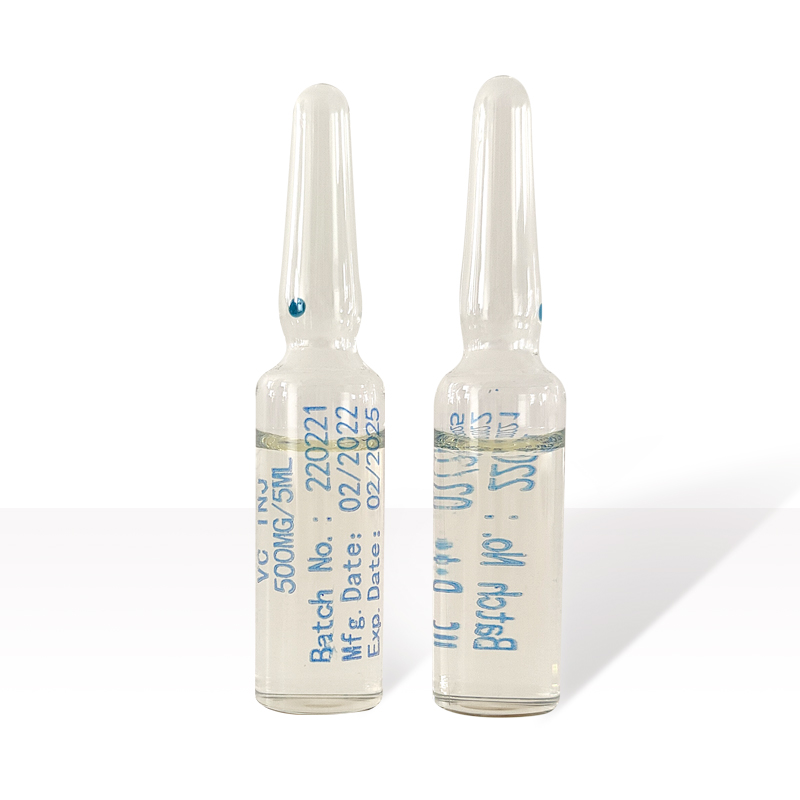
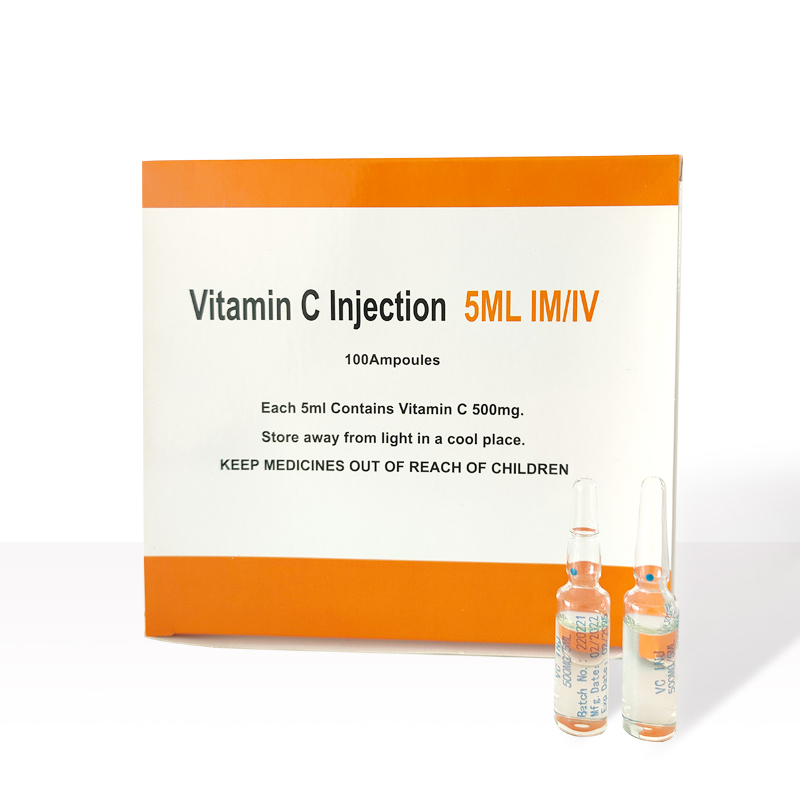
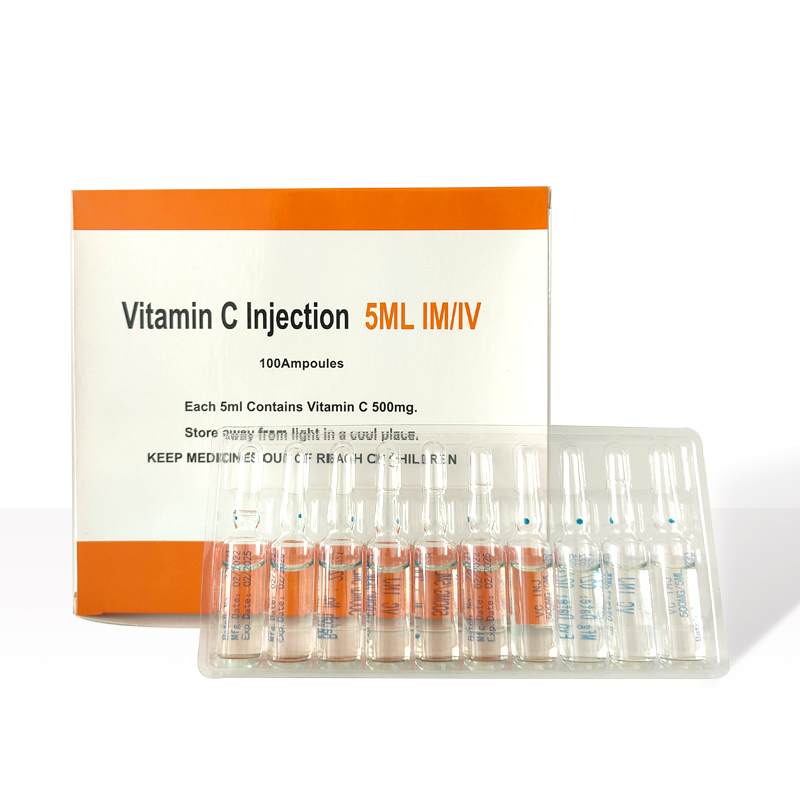
Mechanism of Action
Vitamin C (ascorbic acid) injection functions through several key mechanisms:
- It acts as a cofactor in various enzymatic reactions, including collagen synthesis, which is crucial for wound healing and maintaining the integrity of connective tissues.
- Vitamin C is a powerful antioxidant that neutralizes free radicals and reduces oxidative stress, which can help mitigate inflammation and support overall health.
- It enhances the absorption of iron from the gastrointestinal tract, which is particularly beneficial in treating iron-deficiency anemia.
- Vitamin C also plays a role in the conversion of folic acid to its active form, tetrahydrofolate, which is essential for DNA synthesis and repair.
Uses
Vitamin C injection is primarily used for:
- Preventing and treating scurvy, a condition caused by severe vitamin C deficiency.
- Supporting immune function and enhancing the body's natural defenses.
- Promoting wound healing by facilitating collagen synthesis.
- Increasing iron absorption, which can be particularly useful in patients with iron-deficiency anemia.
- Antioxidant support to reduce oxidative stress and inflammation.
- Additionally, high-dose vitamin C injections are sometimes used off-label for conditions such as cancer, where it may help enhance the effects of cancer treatments and reduce chemotherapy-related side effects. However, its efficacy in these off-label uses remains a subject of ongoing research and debate.
Dosage and Administration
Adults:
- For the prevention of scurvy: 70 to 150 mg daily.
- For the treatment of scurvy: 300 mg to 1 g daily, divided into several doses.
- For wound healing: 300 to 500 mg daily, typically administered intravenously.
- Children:
- For scurvy: 300 mg to 1 g daily, depending on the severity of the deficiency.
- Administration:
- Vitamin C injection can be administered intravenously (IV), intramuscularly (IM), or subcutaneously (SC). When administered intravenously, it should be diluted in a suitable solution such as normal saline or glucose to minimize adverse reactions.
Storage
Vitamin C injection should be stored at room temperature, typically between 15°C and 30°C (59°F to 86°F). It should be protected from light and kept in a dry place. Avoid freezing the solution, as this can affect its stability and efficacy.
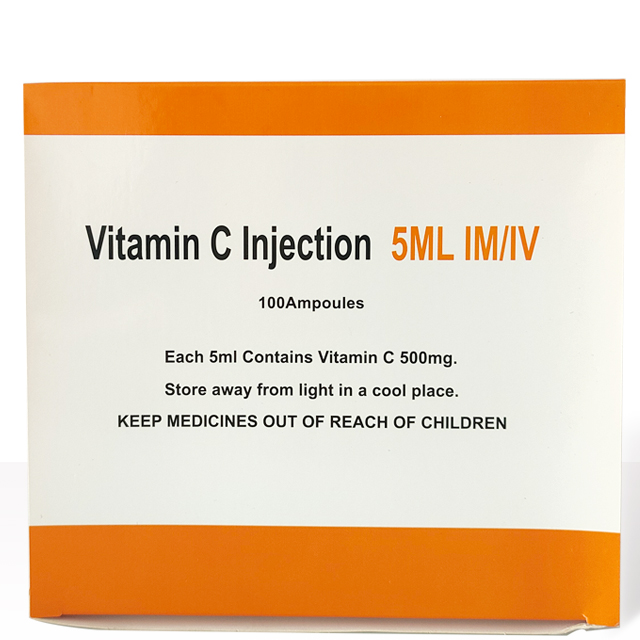








 2006-2025 上海博華國際展覽有限公司版權(quán)所有(保留一切權(quán)利)
滬ICP備05034851號-57
2006-2025 上海博華國際展覽有限公司版權(quán)所有(保留一切權(quán)利)
滬ICP備05034851號-57